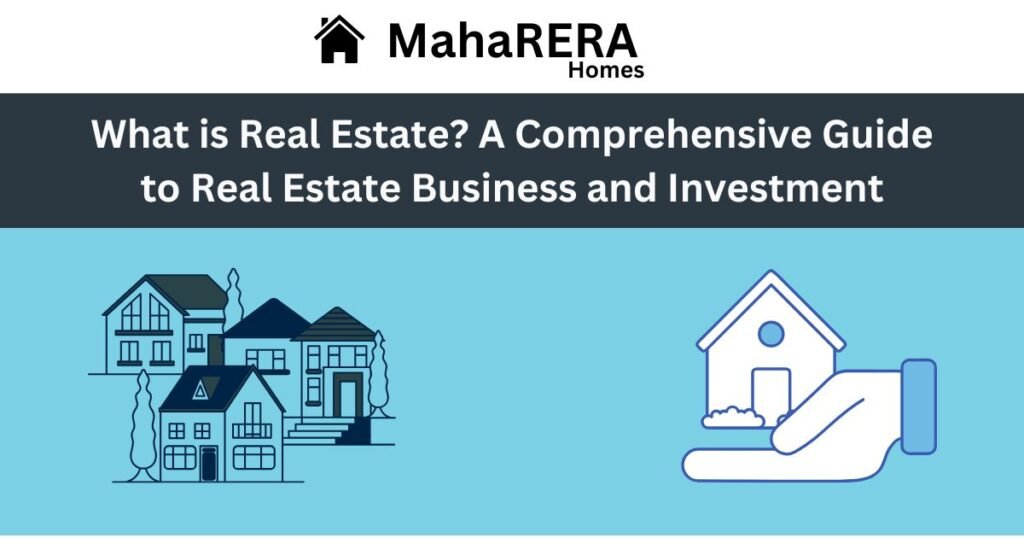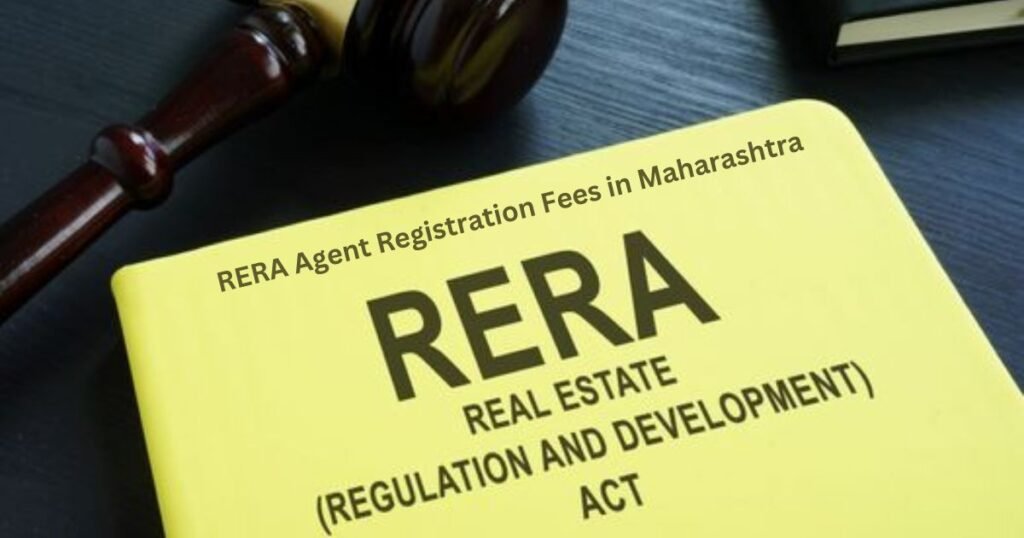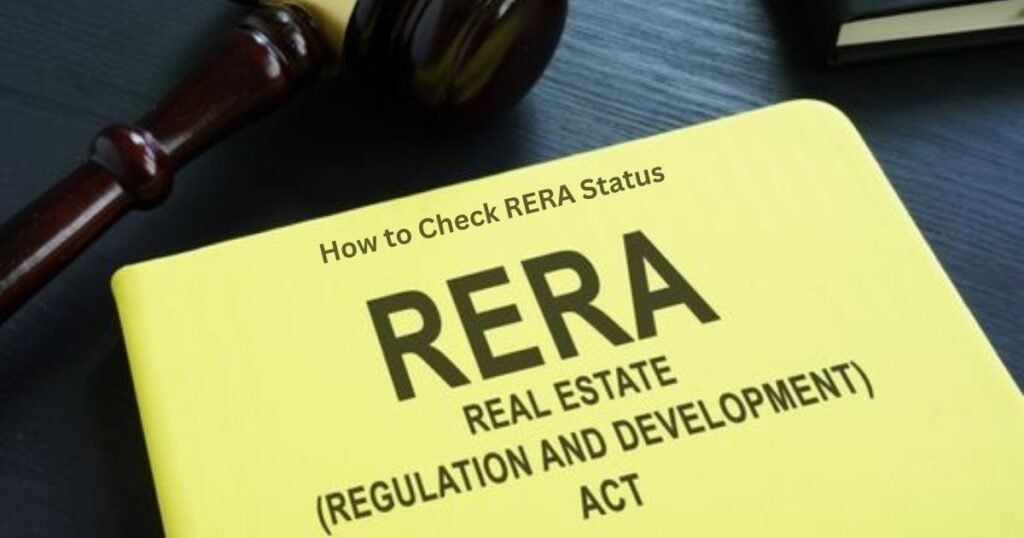Real estate is a term that is widely used in two main contexts: real estate business and real estate investing. But, what exactly is real estate, how does it work, and what are its types? In this article, we will explore everything about real estate, its types, and how it works as both a business and an investment. By the end, you will also learn an interesting fact related to real estate ownership. Let’s get started!

What is Real Estate?
Real estate, also known as real property, refers to land and any permanent structure attached to it. This includes natural resources such as water, minerals, and crops as well as man-made structures such as homes, buildings, shops, factories, and more. Basically, real estate is property that is attached to land, making it a tangible and immovable asset.
The term “real estate” has its origins in the English language, where “real” means royal (i.e. belonging to the king) and “estate” means property. Historically, all land was considered the property of the king, and even today governments have considerable control over land and property rights.
Also Read: Top 10 Tips for First-Time Homebuyers: A Comprehensive Guide to Your Dream Home
Types of Real Estate
Real estate can be categorised into five main types:
1. Land
Land is the foundation of all real estate. It includes:
- Agricultural land
- Barren land
- Vacant land
- Plots and residential land
- Land reserved for special purposes (e.g., parks, community projects)
Land is considered the most basic form of real estate and serves as the starting point for all other property types.
2. Residential Real Estate
Residential properties are designed for human habitation. These include:
- Houses
- Apartments
- Villas
- Townhouses
- Condominiums
Residential real estate is solely for living purposes and does not involve any business activities.
3. Commercial Real Estate
Commercial properties are used for business purposes. Examples include:
- Office buildings
- Shops
- Malls
- Hotels
- Restaurants
These properties generate income through rent or business operations.
4. Industrial Real Estate
Industrial properties are used for manufacturing, production, or storage. These include:
- Factories
- Warehouses
- Industrial parks
- Research and development facilities
Industrial real estate is typically located in designated industrial zones within cities.
5. Government-Owned Real Estate
This category includes properties owned and managed by the government, such as:
- Roads
- Public parks
- Government offices
- Schools and colleges
- Hospitals
Government real estate is used for public welfare and administrative purposes.
Real Estate as a Business
Real estate is one of the largest and most lucrative industries globally. It encompasses a wide range of activities, including:
- Buying and selling properties
- Developing land and constructing buildings
- Renting and leasing properties
- Property management
The real estate business is interconnected with various sectors, such as construction, architecture, banking, and interior design. It also provides employment opportunities for millions of people, from laborers to professionals like architects and real estate agents.
Why is Real Estate a Big Business?
Real estate fulfills three basic human needs:
- Food – Derived from agricultural land.
- Clothing – Made from resources like cotton grown on land.
- Shelter – Provided by residential properties.
These fundamental needs make real estate an essential and ever-growing industry.
Real Estate as an Investment
Real estate is also a popular investment option due to its potential for long-term returns. Here’s how it works:
Benefits of Real Estate Investment
- Steady Income – You can earn rental income from properties.
- Capital Appreciation – Property values tend to increase over time, offering significant profits upon sale.
- Tax Benefits – Many countries offer tax deductions on mortgage interest and property taxes.
- Diversification – Real estate adds diversity to your investment portfolio, reducing risk.
Challenges of Real Estate Investment
- Requires substantial initial capital.
- Property maintenance and management can be time-consuming.
- Market fluctuations can affect property values.
However, banks and financial institutions often provide loans to help investors purchase properties, making it easier to enter the market.
Interesting Fact: Government Ownership of Real Estate
Did you know that even if you own a house, shop, or land, the government has some rights over it? If you don’t pay property taxes or fulfill legal requirements, the government can take back your property. This is the importance of taking care of property taxes and legal responsibilities so that you can retain your ownership rights.
Conclusion
Real estate is a large and dynamic sector that plays a vital role in both business and investment. Whether you want to buy a home, start a business, or invest in property, a basic understanding of real estate is a must. From land and residential properties to commercial and industrial properties, real estate offers countless opportunities for growth and income generation.
Thank you for reading!
FAQs
What is the difference between real estate and real property?
Real estate means land and any permanent structures attached to it, such as buildings or homes. At the same time, real property includes not only the physical land and structures but also the legal rights associated with ownership. These rights give us the right to use, sell, or lease the property. So, real estate refers to land and its structures, while real property covers the legal rights attached to it.
How can I start investing in real estate with limited funds?
If you have limited funds, you can still enter real estate, with some smart strategies. Like:
Wholesale: Here you can act as a middleman between properties. You lock in a property contract with a seller and then sell it to an investor. You do not need to buy the property, you just arrange the deal and earn a commission in between.
REIT (Real Estate Investment Trust): If you do not want to invest money directly in property purchase, then you can invest in REITs. REITs are companies that invest money in real estate projects and pass on their profits to shareholders. You can buy REITs like the stock market.
Partnership: If you have less money, then you can work together with other investors. In partnership, both the people combine their resources and buy property together. The profit is later divided among themselves.
Government Schemes: There are many schemes from the government that help first-time buyers to buy affordable housing. Like Pradhan Mantri Awas Yojana (PMAY) or any state-level scheme. By taking advantage of the schemes, you can buy property even for less money.
So friends, if you have a limited budget, then there are opportunities in real estate too, just a little research and smart planning is necessary!
What are the risks of investing in real estate?
Real estate investing comes with certain risks, such as:
Market fluctuations: The value of the property can rise or fall depending on the market.
Initial expenses: Buying and maintaining a property requires a lot of money.
Tenant problems: Sometimes tenants may not pay rent and create issues.
Legal and regulatory issues: There may be changes and complications in property laws or rules.
But, if you do proper research, plan well, and consult experts before buying a property, the risks can be managed. A little hard work and understanding can yield good returns in real estate!
How does real estate generate income?
There are some ways to earn money from real estate:
Rental Income: You can earn money by renting out properties like a house, shop, or factory to someone and charging monthly rent.
Capital Gain: Earning profit by selling the property at a higher price. For example, if you had a cheap property and sold it for a higher price, then the extra money you got is your capital gain.
Property Appreciation: The value of the property increases over time. The property you bought at a low price today may become expensive tomorrow, and you benefit from it.
Helpful Services: You can also earn money by providing services like property management or maintenance. For example, if you take care of someone’s property or do repair work, you get paid for it.
These are all the ways in which income can be generated from real estate!
Can the government take over my property?
Yes, the government can take your property back from us in certain circumstances, such as:
For not paying property tax: If we do not pay property tax on time, the government can damage our property.
For breaking zoning or land-use rules: If we use our property wrongly or do not follow zoning laws, the government can take any action on our land.
For public welfare projects: If the government needs our property to build roads, schools, or any public project, it can legally use it. This is called “eminent domain”.
The easiest way to avoid all this is to complete all the legal and tax fees related to our property on time. Do not be careless even a little, otherwise you will have to lose your property even at the cost of your life.




